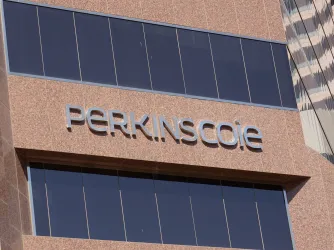Table of Contents
Here’s why Chicago Mayor Lori Lightfoot can’t ask teachers to help her reelection campaign

Steve Hamann / Shutterstock.com
Chicago Mayor Lori Lightfoot backtracked on an email sent by a campaign staffer to public school teachers last week asking them to encourage students to volunteer on her reelection campaign in exchange for course credit.
After uproar from Chicago Public Schools teachers and the Illinois chapter of the ACLU, which called the email “inappropriately coercive,” Lightfoot eventually acknowledged that a “solid wall” should exist between her reelection campaign and government employees, especially public school teachers.
That’s a good idea, because when a powerful elected official like Lightfoot “asks” or “requests” government employees to do something that will directly benefit her, a reasonable person may interpret that “request” as a direct order and fear retaliation if they don’t follow through.
Public employees shouldn’t have to choose between supporting a political candidate — either directly or indirectly — whom they may disagree with or risk punishment if they don’t. And thankfully, the First Amendment ensures they don’t have to.
The First Amendment protects the right of citizens to express themselves freely, especially when criticizing the government. But it does not protect powerful government officials who misuse the power of their office to solicit support.
Lightfoot may be the most recent prominent leader to stumble into this First Amendment danger zone, but she’s far from the first. Here at FIRE, we’ve seen professors and administrators at public colleges and universities make similar requests of their students only to face the same response: You Can’t Do That.
Elected officials like Mayor Lightfoot should tread carefully and refrain from compelling government employees to promote a campaign message they might disagree with.
Nearly 20 years ago, during the U.S. invasion of Iraq, a professor at Citrus College in California compelled undergraduate students to write anti-war letters to former President George W. Bush and penalized those who refused. After receiving a letter from FIRE, the college “responded swiftly and boldly to restore liberty and to undo the harm already done.”

Victory for Freedom of Conscience at Citrus College: Coerced Student Anti-War Letters Repudiated by Administration
Press Release
A Citrus College professor compelled undergraduate students to write anti-war letters to President George W. Bush and penalized students who dissented.
Just a few years later, a graduate student at Rhode Island College was asked to publicly advocate for “progressive” social changes that he did not believe in. The student’s professor said that if he did not agree with the school’s political philosophy then he should consider dropping out or finding another line of work. Although the college’s president — after being prompted by FIRE — assured the student that he would not be penalized for his conscientious objections, that promise proved empty. When the student refused an internship that would have compelled him to advocate for policies he opposed, a college official informed him that he could no longer pursue a master’s degree in social work.
“Nobody should be coerced by the state to advocate a cause he does not support,” said David French, then-president of FIRE, who added that Rhode Island College’s “attempt to force an unwilling student to lobby for policies he opposes is outrageous and unconstitutional. It must end immediately.”
FIRE’s current president and CEO, Greg Lukianoff, back when he was our organization’s legal director, said, “Forcing a person to publicly state one thing when he or she privately believes something else is one of the hallmarks of a totalitarian state.”
Justice isn’t always prompt. At Rhode Island College, the graduate student’s complaint against the school took 15 years just to make it to the state’s Supreme Court, which ordered the case to go to trial — finally — in 2019. But even timelines like that, while frustrating, won’t threaten FIRE’s resolve. We’re in it for the long haul.
Elected officials like Mayor Lightfoot should tread carefully and refrain from compelling government employees to promote a campaign message they might disagree with. Otherwise, our lawyers might feel compelled to start a First Amendment campaign against them.
Recent Articles
FIRE’s award-winning Newsdesk covers the free speech news you need to stay informed.

Harvard’s resistance to Trump is a model for US universities

Sixty-one media organizations and press freedom advocates contest Perkins Coie executive order — First Amendment News 466

Harvard stands firm, rejects Trump administration’s unconstitutional demands


